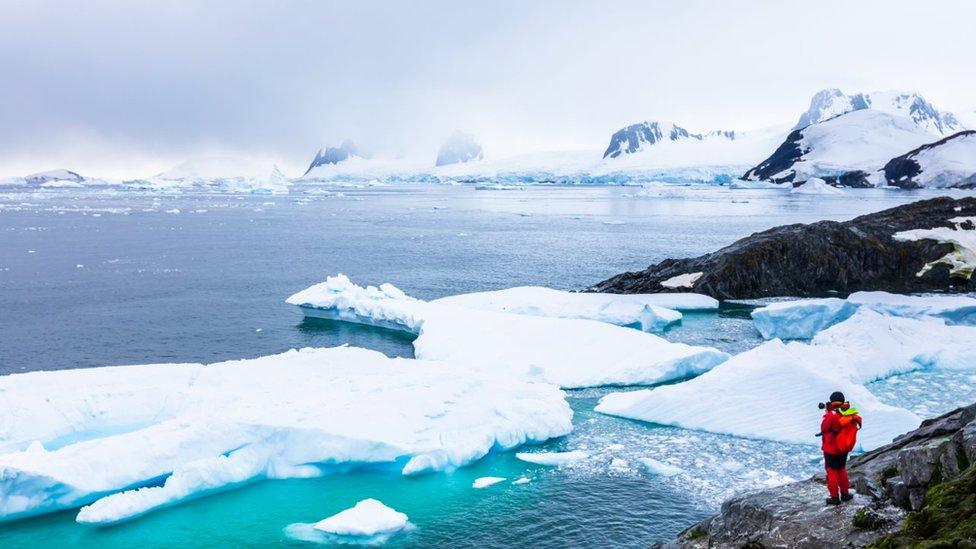Climate change: Highest-ever temperature of over 20掳C recorded in Antarctica
- Published

Antarctica has hit a record temperature of over 20 degrees Celsius (掳C) for the first time, just a few days after it had already broken the previous highest record.
A reading from the Esperanza base in western Antarctica showed a temperature of 18.3掳C last week, but another measurement at Seymour Island, less than 100km away, reportedly hit 20.75掳C just a few days later.
That is around the average temperature for the summer month of June in London.
Brazilian scientists who conduct research from the base on Seymour Island say the temperature reading needs to be double checked and confirmed by the World Meteorological Organization but described the new record as "incredible and abnormal".
"We are seeing the warming trend in many of the sites we are monitoring, but we have never seen anything like this," added Carlos Schaefer, who works on a project that looks at the impact of climate change in the Antarctic.
So why is it so warm?
Scientists say the changeable temperatures in this area of the Antarctic appear to be caused by shifts in ocean currents and El Ni帽o events.
As it lies in the Southern Hemisphere, seasons in Antarctica are the opposite of seasons here in the UK.
An El Nino is a weather event, which can cause extreme weather around the world. An El Nino comes along about every two to seven years as part of a natural cycle. It is caused by warmer than usual water in parts of the Pacific Ocean, between South America and Australia, and creates unusually hot and stormy weather. Warm air from the west blows into the pacific ocean and heats it up just below the surface.
Summer runs from October to February and it's winter for the rest of the year. Antarctic summers average just above freezing, with east Antarctica even colder than the western region.
During the winter months, parts of Antarctica reach as low as minus 60掳C, and sometimes it can be even colder than that.
The lowest temperature recorded in the world, minus 89.6 degrees Celsius, was recorded at Vostok Station, a Russian research station in inland Antarctica on 21 July 1983.
What's it like to live in Antarctica?
- Published6 February 2023
- Published12 July 2017
- Published13 May 2015
